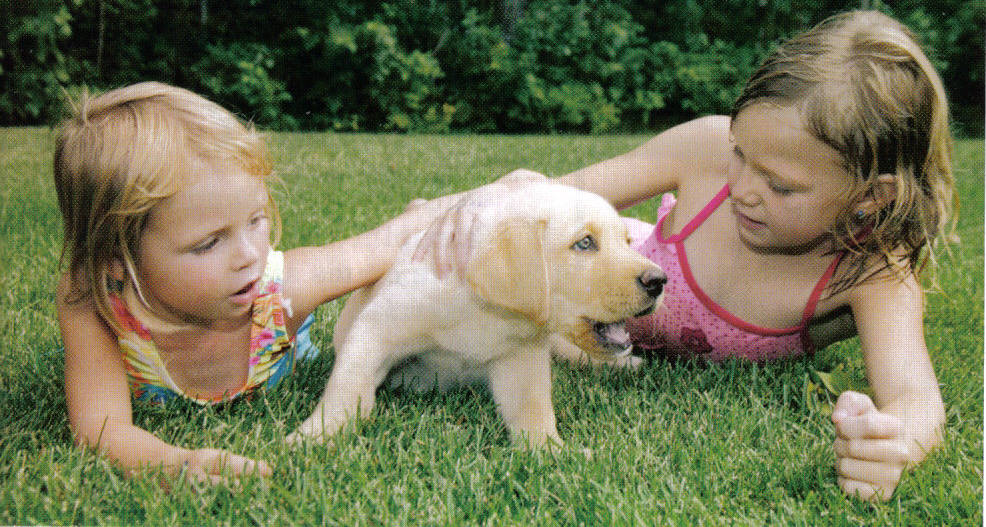|
Low blood sugar can be quite dangerous to puppies. It's essential that a new puppy owner be able to recognize, prevent and treat this hazardous condition.

Hypoglycemia, or low blood sugar, is a serious condition that can occur in young puppies, especially toy breeds. Early recognition and proper treatment is the key to preventing potentially serious health consequences.
If a puppy is bright, alert and bouncing one minute, but is down, depressed and disoriented the next, it could be a sign of hypoglycemia. The maintenance of proper bloodsugar levels is vital, as the puppy's brain is entirely dependent on blood sugar as a source of energy. Thus, signs of low blood sugar are usually related to nervous system dysfunction.
Clinical signs of hypoglycemia can vary according to how rapidly the blood glucose falls below normal. A rapid fall results in dilated (enlarged) pupils, increased heart rate, nervousness, tremors, vocalizing and irritability. A gradual fall in blood glucose can result in visual disturbances (apparent blindness), mental dullness, confusion, seizures, decreased heart rate and coma. Both scenarios can also result in dehydration and hypothermia (decreased body temperature).
THE CAUSE.
This condition is typically caused by a puppy being unable to adapt to less frequent feeding during the post-weaning period. Young puppies must receive nutrition every few hours. Puppies typically have very few fat reserves to provide energy in a crisis. If nutrition is not provided on a frequent schedule, body glucose stores may become depleted. If this occurs, a puppy's immature liver may be unable to produce/process glucose quickly enough to meet body needs.

PREVENTION:
In order to prevent or limit hypoglycemia, be sure that the puppies have food available at all times and you monitore for adequate consumption. Also be aware that many factors can contribute to a puppy not eating as it should. These include any type of stress, such as infections,
vaccinations, excess physical exertion (playing too hard), weaning, poor nutrition, hypothermia, gastric upset, etc.
TREATMENT:
Since hypoglycemia, dehydration,
and hypothermia often all occur together, all three conditions must be corrected. Treatment should begin by contacting the your veterinarian. Maintaining a warm, humid environment (85 degrees, 85 percent humidity) is very important.
The body temperature should be raised
and maintained above 95 degrees (hot
water bottles, heating pad wrapped in a
towel, hair dryer, etc.). A veterinarian
may advise oral sugar supplementation
(dextrose, syrup, honey, sugar water), if the puppy can swallow typically one cc or ml per pound of body weight every
hour. As the condition improves, moist
food and water should then be offered
(forced, if necessary) while slowly weaning the pup off of the sugar supplementation. The veterinarian may start an intravenous line or subcutaneous fluids if the condition warrants it. Frequent high-protein, high-carbohydrate feedings are necessary to prevent reoccurrence.
The condition usually resolves in a short period of time with steady food intake, stress reduction and maturity. If you think your puppy may be suffering from hypoglycemia, be sure to reach out to a veterinarian immediately. Follow his or her advice and, in most cases, treatment of this condition will be 100 percent successful.
THANK YOU for stopping by and visiting.
About once a week or so I will write a pet related article or alerts about food recalls, new over the counter medication, proposed pet laws etc. The alerts and news items will be in the E-mail, most lengthy articles will be linked back to my web-site. If you would like to get an E-mail notification, I would appreciated very much if you would sign up and give me permission to E-mail you. Just send us a blank E-mail to
pet_articles@caninestore1.com
|